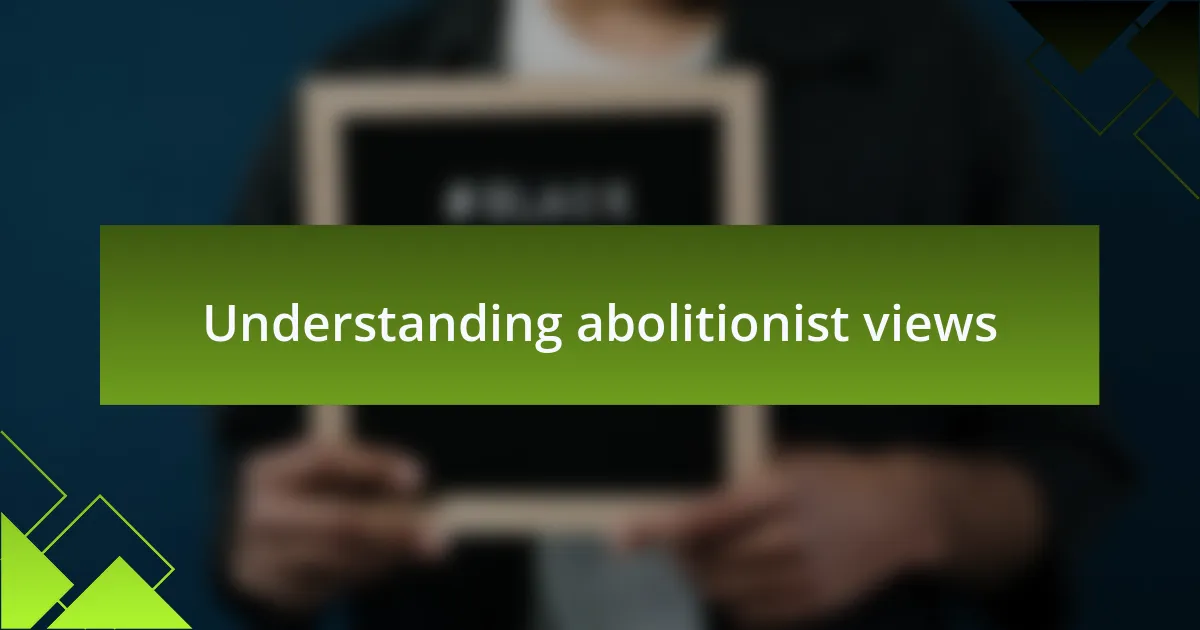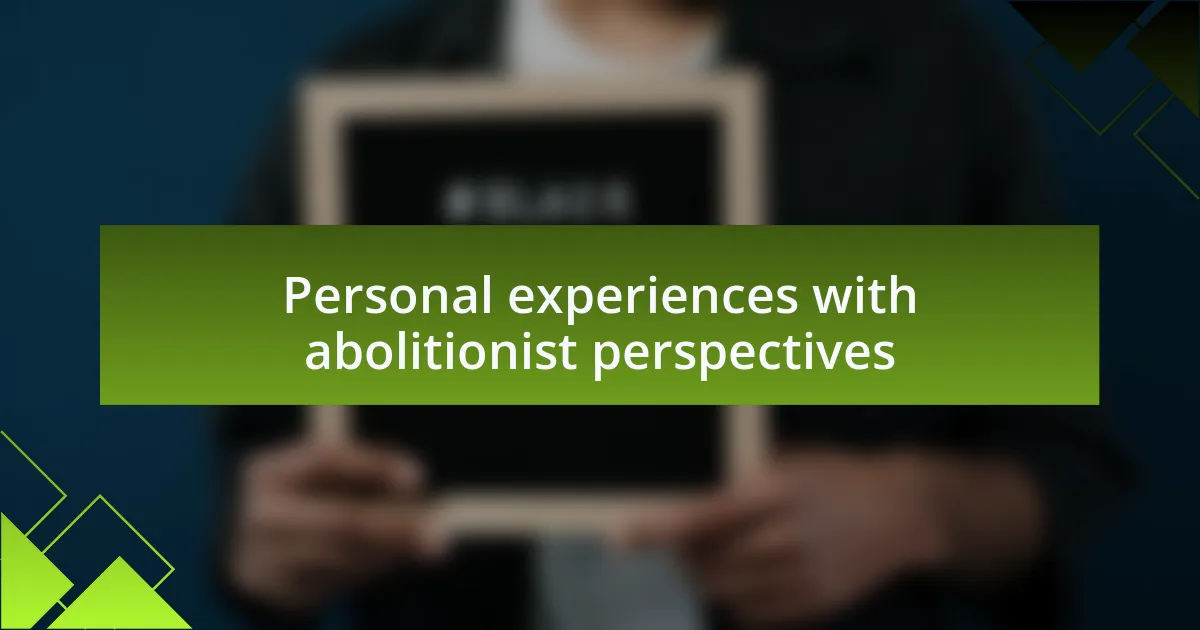Key takeaways:
- Abolitionists argue that the death penalty is an irreversible punishment prone to errors, raising questions about the infallibility of the justice system.
- The moral stance against capital punishment highlights the importance of compassion and rehabilitation over revenge, emphasizing human dignity.
- Systemic bias, particularly racial and socioeconomic disparities, plays a significant role in death penalty cases, calling for a just legal system.
- Personal encounters with advocates and those affected by wrongful executions reveal the need for restorative justice rather than punitive measures.

Understanding abolitionist views
Abolitionist views argue fervently against the death penalty, rooted in the belief that it is an irreversible punishment that can lead to tragic errors. I recall feeling a wave of disbelief when I first learned about wrongful convictions—how can we justify a system that takes lives without the guarantee of absolute certainty? This raises an essential question: can any justice system truly be flawless?
Moreover, abolitionists emphasize the moral implications of capital punishment, citing it as a violation of human dignity. I once met someone who lost a loved one to violence. Their perspective was powerful; instead of seeking revenge, they advocated for healing and rehabilitation, challenging the notion that taking another life could ever bring peace. How can we reconcile our desire for justice with the need for compassion?
The potential for systemic bias in death penalty cases is another critical aspect of abolitionist arguments. As I dove deeper into this topic, I realized that racial and socioeconomic disparities often play a chilling role in who receives the death penalty. Shouldn’t our justice system aspire to be fair and just for everyone, regardless of background? Understanding these complexities is crucial for anyone looking to engage meaningfully with the abolitionist perspective.

Personal experiences with abolitionist perspectives
Reflecting on my journey, I vividly recall attending a discussion led by a passionate abolitionist. Their stories about families torn apart by wrongful executions struck a chord deep within me. Listening to those firsthand accounts left me questioning not just the legality of the death penalty, but its moral foundation. How many innocent lives must be sacrificed before we recognize the fundamental flaws in our justice system?
In another instance, I engaged in a conversation with a longtime advocate who had dedicated their career to fighting for exonerated individuals. Their commitment stirred something inside me—how could someone devote so much of their life to a cause that seems so uphill? It became clear to me that embracing abolitionist views is about embracing humanity itself, realizing that compassion must prevail over retribution. Have we lost sight of the fact that every person, regardless of their past, has the potential for change?
One particularly emotional moment came while volunteering at a local reform initiative. Hearing perspectives from individuals who had been directly impacted by the death penalty challenge my assumptions every day. Their resilience and focus on restorative justice drove home a crucial point: instead of punishing with finality, shouldn’t we invest in methods that promote healing and understanding? It’s this blend of personal stories and professional dedication that continues to shape my understanding of abolitionist perspectives.

Resources for further exploration
To deepen your understanding of abolitionist perspectives, I highly recommend exploring books like “Just Mercy” by Bryan Stevenson. Stevenson’s narrative about fighting for justice and highlighting systemic issues emphasizes the importance of compassion within our legal framework. Have you ever considered how personal stories can reshape our perceptions of justice?
Another valuable resource is the documentary “I Am Innocent,” which delves into the lives of exonerated individuals. This film showcases not only the flaws within the death penalty system but also the lived experiences of those wrongfully convicted. Watching their journeys, I found myself reflecting on what justice truly means – is it merely a consequence, or should it be an opportunity for redemption?
For scholarly insights, the website of the Death Penalty Information Center offers comprehensive reports and articles that dissect the complexities of capital punishment. Their research stirs a lot of questions about the impact of the death penalty on communities. It makes you wonder: can reform become a reality without acknowledging these systemic injustices?